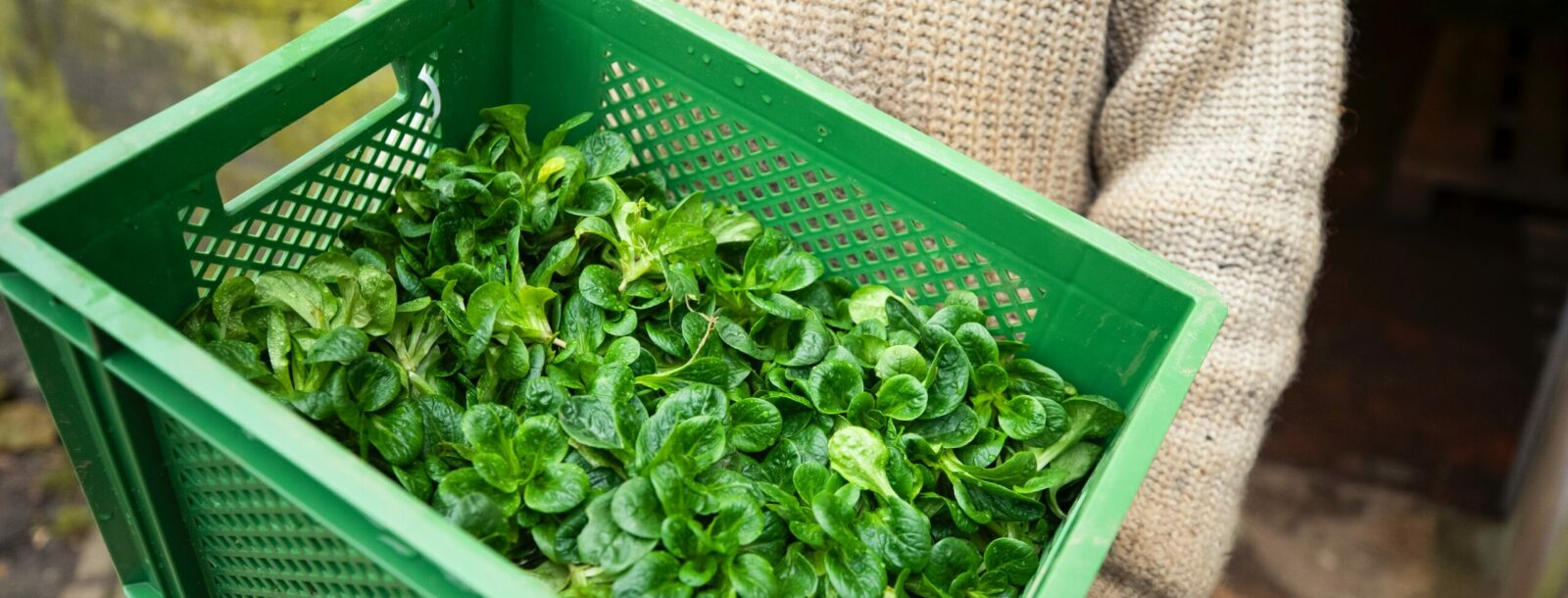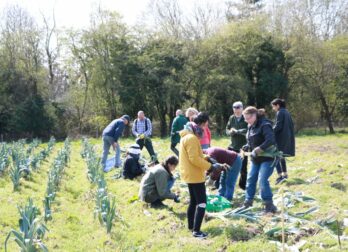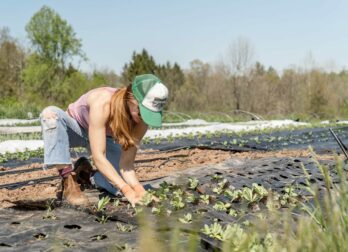
New report finds barriers to progress in agroecology
By News Team
Research from the Real Farming Trust on the impact of community food businesses has revealed the challenges agroecological enterprises face in delivering social benefits in an increasingly difficult economic climate.
Findings published in the Food for Thought report today speak to the urgent need for structural and policy changes that fully support the transition to localised food systems.
Rob Wannerton, Social Impact Manager at the Real Farming Trust, and the report’s author, said:
“The political and economic climate is incredibly tough for small businesses in the food and farming sector right now, not least for those with an environmentally and socially driven mission who are working hard to make a positive and progressive impact in their local communities. We know that community food businesses make a real difference to people’s lives – but at the moment, the challenges they face mean that unrealistic expectations are being placed at their doors.”
The Food for Thought report highlights a number of issues:
- Delivering social impact requires resources that most community food businesses do not have. Yet there are expectations both within and outside the businesses that they should deliver these social benefits without any clear idea of how, and who pays for it.
- In an uncertain economic climate, the positioning of agroecological food as niche or luxury makes businesses increasingly vulnerable.
- There is a tension between the aims of community food businesses to provide ‘good jobs’ in food production and the realities of doing so with limited resources in a dominant food system focussed on providing cheap food.
- Employees and customers of community food businesses are often ‘incomers’ from other regions of the country, raising questions about the relationship between the business and the geographical community in which it sits.
- Individual businesses, short supply chains and local food networks run the risk of creating or sustaining bubbles of privilege, despite their best efforts to deliver social impact amongst a wide variety of people in their local communities.
- Businesses may not be taking full advantage of assistance available through sectoral organisations, particularly when it comes to volunteer recruitment and accessing training and development for staff who supervise volunteers.
Clare Horrell, Executive Director at the Real Farming Trust, said:
“Agroecology is about social values just as much as environmental values. Community food businesses can and do deliver social impact, but they could do more if they were better supported. Social impact has a cost, and it is very challenging for community food businesses to deliver it in a structural and policy environment where they operate on extremely tight margins.
“Understanding more about the social impact of community food businesses will help organisations working in policy and funding to advocate better for the changes needed to support this work. This is vitally important if we want more people to have access to food that is grown in a way that supports people and the environment – both of which are needed for a transition to an agroecological future.”
The research was carried out with eight businesses that have been beneficiaries of LEAP, the Real Farming Trust’s funding programme, since 2020. Further research is planned, and more agroecological businesses are invited to join the discussion.
Download the full report – Food for Thought: Exploring the Social Impact of Community Food Businesses



